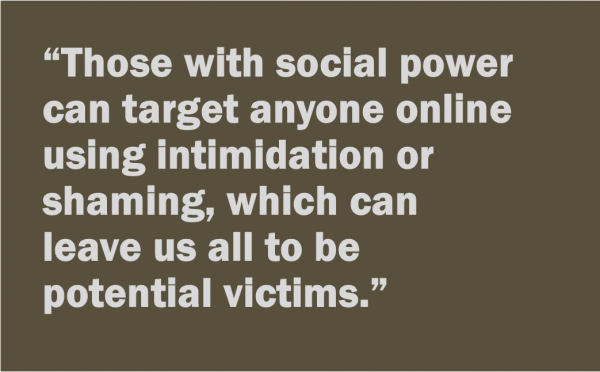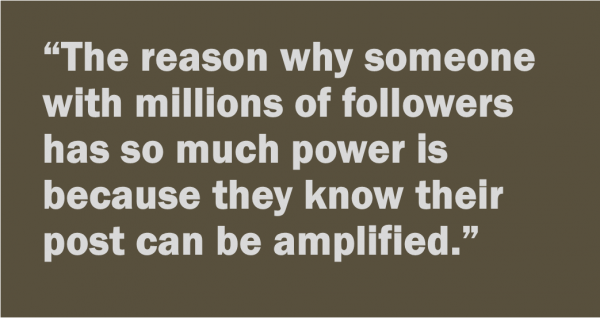PERSPECTIVE: The Social Media 'Leash' Can Choke Anyone
/by Adam Chiara Social media gives everyone access to the most powerful communication tool in history, but that power can also be used against anybody.
Like the proverbial dog on a leash, companies, public figures, and even private citizens can be choked by those who have a massive social following. Those with social power can target anyone online using intimidation or shaming, which can leave us all to be potential victims.
Companies
Let’s look at a recent case: Ann Coulter’s battle with Delta Air Lines. Put aside who was right in the matter; that’s really not the point here. What’s important for is to apply the concept of what happened to future issues.
Coulter did not just complain, which even a celebrity has the right to do. Instead, she chained a leash on the company and tried to choke it. 
After insulting the airline and its employees, she then used a form of intimidation; Coulter tweeted pictures of passengers who had nothing to do with the incident and tried to embarrass them.
That is a threat from a company’s perspective. Coulter gave a clear message — if you anger me, I will even shame your customers.
Companies should of course be held accountable, and social media is one way to do that, but an organization should not be in the position where if something goes wrong, they are forced to act in fear of blackmail.
 Yes, this day it was Delta, and they have not made too many friends lately. But tomorrow it could be a smaller company. Maybe a local place that has been a pillar to your community. Do you trust Coulter, or any other person with social power, with the ability to tarnish a business’ reputation indefinitely?
Yes, this day it was Delta, and they have not made too many friends lately. But tomorrow it could be a smaller company. Maybe a local place that has been a pillar to your community. Do you trust Coulter, or any other person with social power, with the ability to tarnish a business’ reputation indefinitely?
Private Citizens
It’s not just companies who must fear the wrath of an angry person with power. The social media leash can be tied on you by our president.
In 2015, when an 18-year-old college student told the presidential candidate Donald Trump that she didn’t think he was “a friend to women,” Trump made sure to humiliate her on Twitter.
“The arrogant young woman who questioned me in such a nasty fashion at No Labels yesterday was a Jeb staffer! HOW CAN HE BEAT RUSSIA & CHINA?,” Trump tweeted the next day.
The Washington Post reported that she then began receiving calls, emails, and Facebook posts that were threatening and were often sexual in nature.
“I didn’t really know what anyone was going to do,” she was quoted saying in the Post. “He was only going to tweet about it and that was it, but I didn’t really know what his supporters were going to do, and that to me was the scariest part.”
Whether you support Trump or not, understand what he did here. He either intentionally or ignorantly signaled for supporters to intimate this young woman. Why? To send a message — go after me, and I will go after you — only I have more power.
I’m sure there are some who just read that and would argue something along the lines of “she deserved it.” Again, that day it was her, tomorrow it might be your child who is targeted by a public figure.
Cutting the leash
If your tweet isn’t retweeted, does it make a sound?
The answer is no.
The reason why someone with millions of followers has so much power is because they know their post can be amplified. But if that tweet does not get spread, it will be lost in the river of endless content.
So even if you agree with something that was posted, it would be wise to take a moment and think before you share it.
What kind of precedent is this creating?
What if this post was directed toward an institution or person whom I care about?
Is this post advancing a dialogue or is it intended to intimidate or humiliate?
After considering these questions, then you can ultimately decide if you are going to help strap the leash on or not.
____________________________
Adam Chiara is an assistant professor of communication at the University of Hartford. He has worked as a legislative aide in the Connecticut General Assembly, as a journalist, and as a public relations practitioner. He's on Twitter at @AdamChiara. This article first appeared in The Hill.































